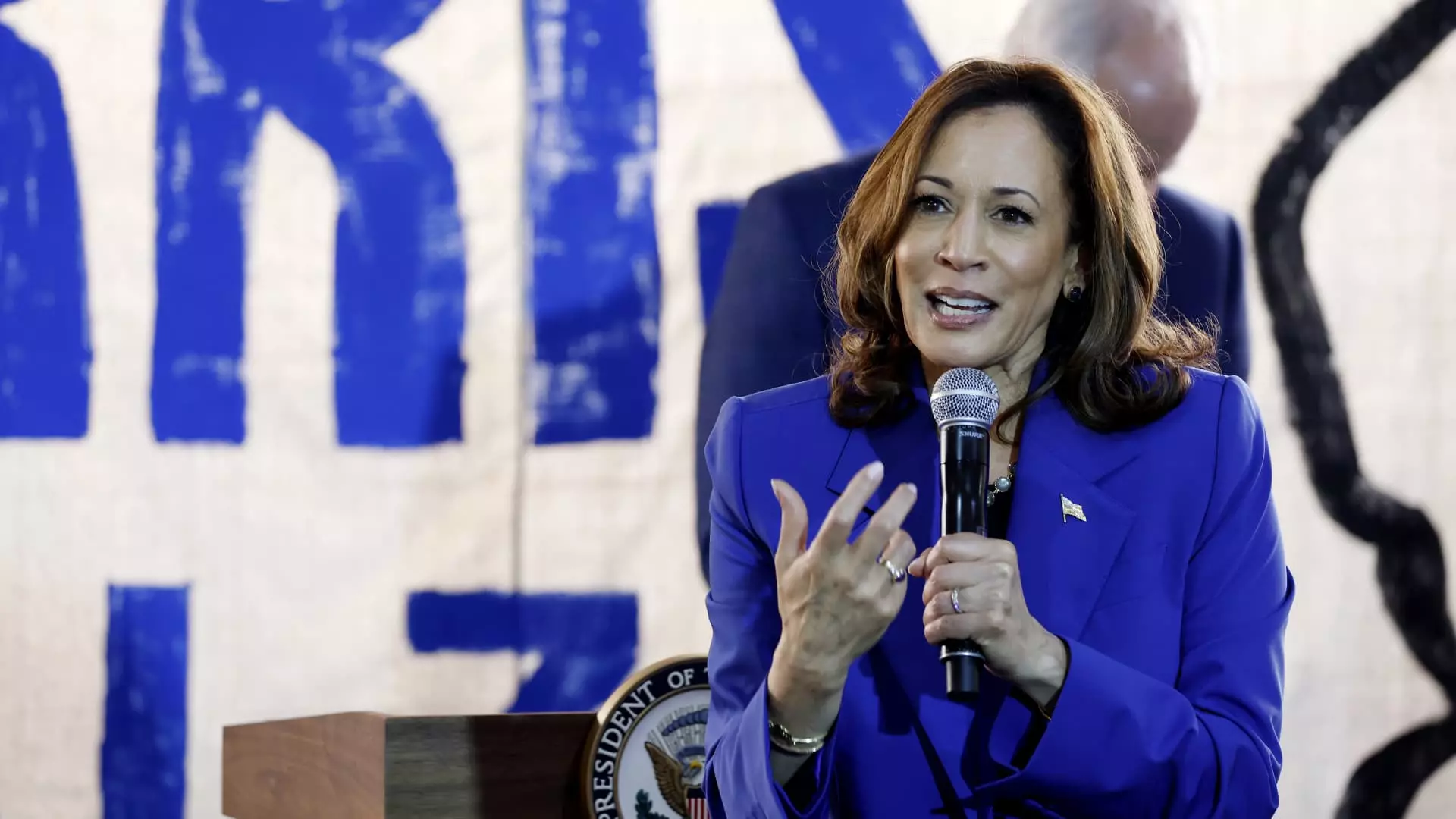Vice President Kamala Harris has proposed increasing the corporate tax rate to 28% as part of her plan to generate revenue and fund ambitious programs as president. This move is seen as a way to redistribute wealth and ensure that working class individuals receive their fair share. The proposal comes in the wake of former President Donald Trump’s tax cuts in 2017 which lowered the corporate tax rate from 35% to 21%.
Harris’s campaign spokesman, James Singer, explained that the 28% corporate tax rate is a crucial step towards building an opportunity economy for the middle class. It is intended to promote economic security, stability, and dignity for working Americans. The proposed increase is projected to bring in hundreds of billions of dollars in revenue over the next decade, according to the Congressional Budget Office.
Harris’s current suggestion of a 28% corporate tax rate is lower than what she advocated for during her unsuccessful 2020 presidential campaign. At that time, she called for a complete repeal of Trump’s tax cuts, which would have restored the corporate tax rate to 35%. The shift in stance now aligns Harris with President Joe Biden’s budget proposal, signaling a unified approach within the Democratic Party.
While Harris’s proposal is likely to face opposition from Republicans, she may have more leverage if Democrats gain control of both the House and Senate. The expiration of various provisions of the Trump tax cuts in 2025 will further complicate tax policy discussions, leading to potential negotiations between the parties. Trump himself has warned that failing to renew his tax cuts could have a detrimental impact on the economy.
Critics of Harris’s plan argue that a higher corporate tax rate could hinder economic growth and burden businesses. Singer, however, dismisses these concerns as part of an “extreme Project 2025 agenda” associated with Trump. He suggests that Trump’s policies may actually increase taxes on the middle class and contribute to a rise in the deficit, highlighting the potential consequences of alternative approaches to tax policy.
The debate over raising the corporate tax rate to 28% reflects broader discussions about wealth distribution, economic growth, and government revenue. Harris’s proposal represents a shift towards a more progressive tax policy agenda, aiming to address income inequality and fund social programs. The outcome of this proposal will depend on political dynamics, economic conditions, and public opinion in the coming years.



Leave a Reply